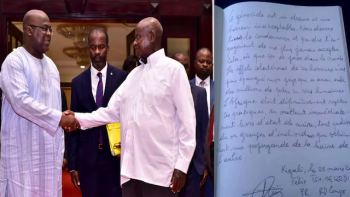Amelia Boynton Robinson, one of the prominent civil rights activists, who nearly died while leading what is known as the "Bloody Sunday" march in Selma, Alabama has died. She was 104. Mrs Robsinson championed voting rights for Blacks and was the first black woman to run for Congress in Alabama. In March 1965, beaten unconscious during the "Bloody Sunday" voting rights march across the Edmund Pettus Bridge in Selma, Ala., she became the rallying symbol against the brutality of the police in South during the Civil Rights era.
Although the state troopers threw teargas and clubbed marchers as they tried to cross the bridge, a photo in a newspaper showing Amerlia Boynton Robinson unconscious, drew wide attention and support to the movement.
Amelia Boynton Robinson, working with the Southern Christian Leadership Conference had asked Martin Luther King Jr. to come to Selma to help mobilize the local community in the civil rights movement. She was instrumental in planning the Selma-to-Montgomery march.
After the march, President Lyndon B. Johnson decided to sign the Voting Rights Act of 1965. She was invited as a guest of honor by President Lyndon B. Johnson to attend the signing.
Fifty years later, Barack Obama, the first black president of the United States, travelled to Selma to commemorate the "Bloody Sunday" event. He marched on the same bridge, pushing Ameliian Boynton Robinson in a wheelchair across the bridge span (see our article: Selma: Commemorating the 50th Anniversary of the Selma to Montgomery Marches)
In January 2015, Boynton Robinson attended the State of the Union address as a special guest of Alabama's first elected black congresswoman, Democratic Alabama Rep. Terri Sewell, who said Boynton's 1964 run for Congress paved the way for her.
The US Civil Rights movement and Blacks have lost an other icon.

















